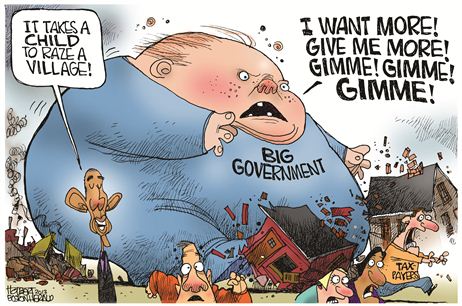News Story of the Day: Another case of unions destroying a company? Perhaps. The telecommunications industry is drastically evolving, and consumers are changing their habits. Businesses still have to adapt to this, and one way to accomplish this is to change payment structures from years ago. But unions won’t allow this.
Contract negotiations between the telecommunications giant and leaders of the Communications Workers of America (CWA) and the International Brotherhood of Electrical Workers (IBEW) will still take place. The parties announced Sunday they’re prepared for bargaining sessions over contracts affecting 39,000 workers.
Unions are demanding the wireless carrier increase its healthcare contributions and make concessions on pensions. Union leaders say Verizon wants to cut jobs, reduce job security and either eliminate or freeze its 401(k) benefit pension. Also, unions are afraid Verizon could ask workers to pay thousands of dollars more in healthcare costs because of greater deductibles, co-pays and co-insurance costs.
“Verizon has earned $1 billion a month in profits over the last 18 months, and paid its top handful of executives $249 million over the last 5 years, but continues to insist on eliminating our job security and driving down our standard of living,” said Dennis Trainor, a CWA vice president who represents Verizon workers in three states, in a statement. “We’re not going to take it, and we’re going to keep the fight going while we’re on the job.”
Marc Reed, Verizon’s chief administrative officer, noted the company is “disappointed” that it has been unable to come to an understanding even after “six weeks of good faith bargaining and a very strong effort by the company.”
Reed confirmed Verizon will push ahead with negotiations. He added Verizon did offer a counter-proposal that amended its previous recommendations regarding healthcare and retirement benefits.
The contract talks affect workers in nine east coast states, including Connecticut, Delaware, Maryland, New Jersey, New York, Pennsylvania, Rhode Island and Washington, D.C.
Chart of the Day: The American Enterprise Institute posted a very compelling chart that pretty much shows that the free market evolves, technology innovates and our consumer behaviors change. This results in shifts of the labor market. In the 1980s and 1990s, it was all about renting video tapes, and in the 2000s it was all about renting DVDs. Thanks to Netflix, we don’t have to go anywhere as we can just sit in our pajamas and stream a movie. The chart below shows the number of U.S. employees in the video and disc rental industry from 1985 to 2015.

Illustration of the Day: Here’s something the 2016 presidential election cycle will avoid talking about: big government always wanting more, whether it’s more war or more welfare. The illustration is courtesy of Daniel J. Mitchell.

Quote of the Day: Today’s quote comes from 20th century economist and writer Henry Hazlitt, author of the groundbreaking book “Economics in One Lesson.”
“The ‘private sector’ of the economy is, in fact, the voluntary sector; and the ‘public sector’ is, in fact, the coercive sector.”
Video of the Day: Don’t expect Donald Trump to start quoting Murray Rothbard or Ludwig von Mises in this election. He won’t be talking about a gold-backed currency. But this video shows his love of the yellow metal and how it is superior to the U.S. dollar. The billionaire mogul openly states gold is better than the greenback.
Leave a Comment